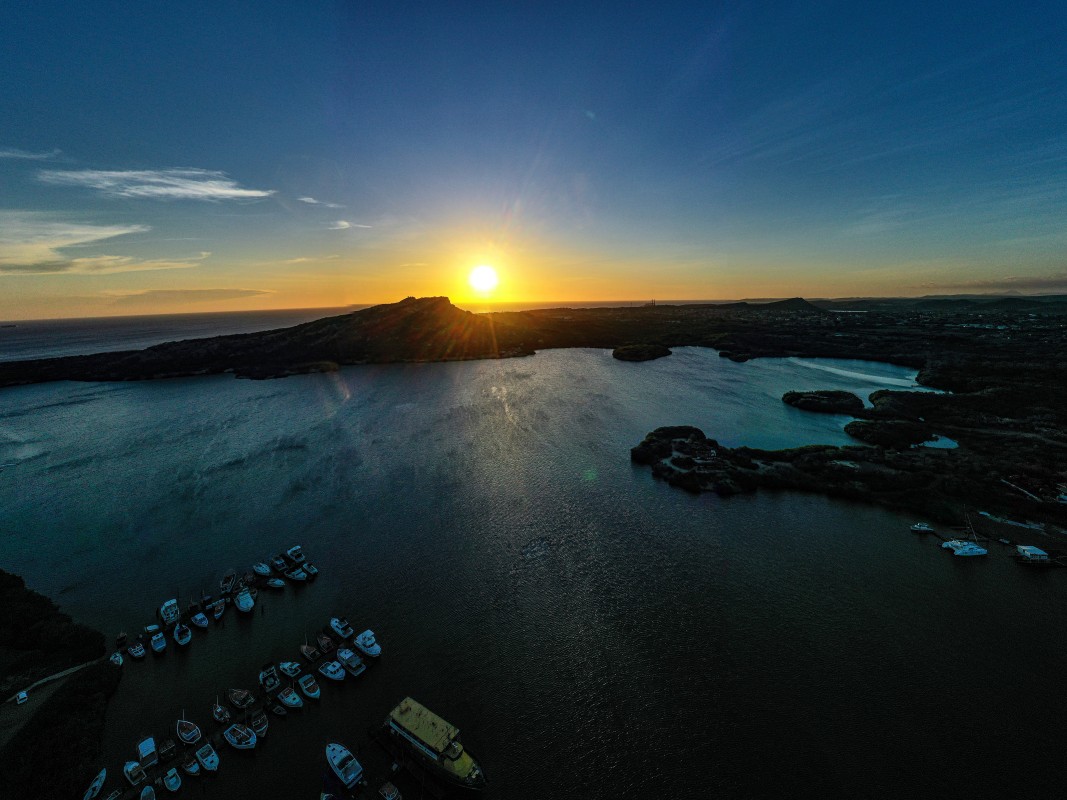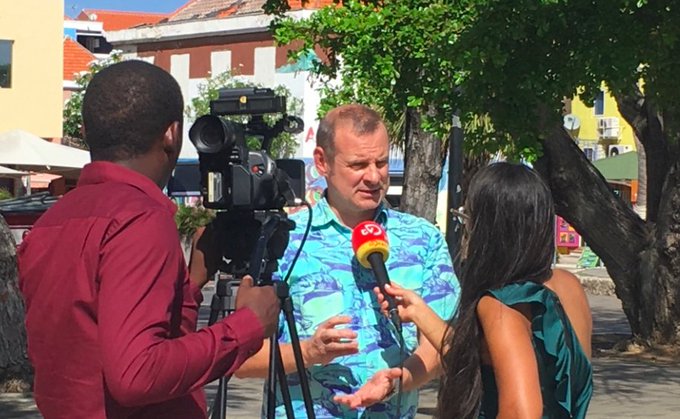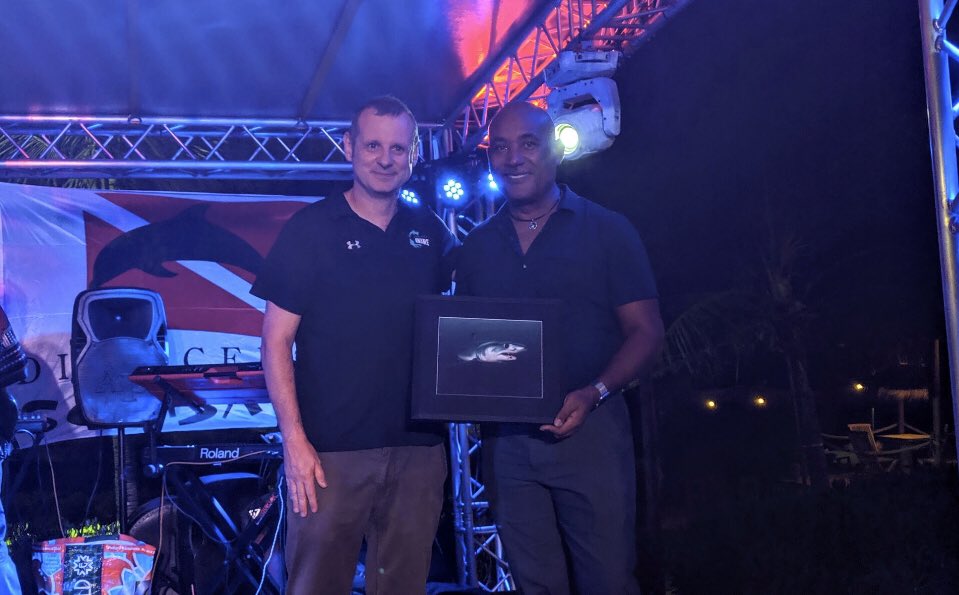Make Or Break Time for Makos
Bridging the Gap Between Community-Led Actions and Policy Change

This year has certainly been a busy one for those of us in the world of shark conservation, especially when it comes to the two fastest shark species, shortfin and longfin makos. In March, the IUCN reclassified both species from Vulnerable to Endangered on the IUCN Red List, highlighting the urgent need for protection. For much of 2019, shark conservationists focused on securing international trade controls for makos through listing under the Convention on International Trade in Endangered Species (CITES) at the Conference of Parties (CoP) in August. Multiple organisations, including our Shark League partners, helped highlight the precarious status of mako sharks and win CITES Appendix II listing for the species. Starting by the end of November, all mako exports must be accompanied by a special permit granted upon demonstration that the products were legally and sustainably sourced. With this global safeguard secured, our attention turned towards protecting makos where they are most at risk: the North Atlantic. Fisheries taking makos from this ocean are managed by the International Convention for the Conservation of Atlantic Tunas (ICCAT).
We at Project AWARE are grateful that our supporters not only regularly thank us for our efforts, but also ask what they can do to assist in conservation successes. We appreciate that the public might feel far removed from international policy negotiations, but we urge people to remember that regulatory decisions on trade and fishing are made by government officials — public servants using public money to manage a public resource. Divers, in particular, are key stakeholders in marine conservation. When they make their voices heard, they can change the course of policy for the better.
At the CITES CoP, thousands of Project AWARE supporters used social media to express their concern for makos directly to ministries, helping immensely to sway officials’ positions and win the mako listing.
 Within weeks, Project AWARE staff headed to the Dutch Caribbean to join partners for the 2019 Curaçao International Dive Festival. The island of Curaçao, a marine tourism hub just off the coast of Venezuela, has been an ICCAT Party since 2014. The Festival focused on the efforts made by Curaçao businesses and government to embed and promote marine conservation into business models and tourism ventures. Events during the week celebrated local conservation-themed entrepreneurs and showcased diverse projects such as coral replanting, recycled marine plastic art, mangrove protection, beach cleans, and Dives Against Debris®. We relished the opportunity to collaborate with our in-country partners, and speak at several events. We focused our public and media messages on the plight of Atlantic mako sharks and encouraged the Curaçao government to continue their efforts to strengthen ICCAT’s finning ban, and to support adoption of an ICCAT ban on mako shark retention, as advised by scientists. Many of the business representatives who helped organize the event, as well as hundreds of divers attending the festival, asked what they could do to support the Shark League’s efforts. We asked them, as tax-generating businesses and active contributors to the economy, to sign our letter to the Curaçao government and our #Divers4Makos petition, so their voices could be heard.
Within weeks, Project AWARE staff headed to the Dutch Caribbean to join partners for the 2019 Curaçao International Dive Festival. The island of Curaçao, a marine tourism hub just off the coast of Venezuela, has been an ICCAT Party since 2014. The Festival focused on the efforts made by Curaçao businesses and government to embed and promote marine conservation into business models and tourism ventures. Events during the week celebrated local conservation-themed entrepreneurs and showcased diverse projects such as coral replanting, recycled marine plastic art, mangrove protection, beach cleans, and Dives Against Debris®. We relished the opportunity to collaborate with our in-country partners, and speak at several events. We focused our public and media messages on the plight of Atlantic mako sharks and encouraged the Curaçao government to continue their efforts to strengthen ICCAT’s finning ban, and to support adoption of an ICCAT ban on mako shark retention, as advised by scientists. Many of the business representatives who helped organize the event, as well as hundreds of divers attending the festival, asked what they could do to support the Shark League’s efforts. We asked them, as tax-generating businesses and active contributors to the economy, to sign our letter to the Curaçao government and our #Divers4Makos petition, so their voices could be heard.
 In the coming days, we will see what effect those 26K+ voices have had when ICCAT decides whether or not to heed the clear and urgent advice for reversing North Atlantic mako decline. We’re disappointed that the United States and the European Union have proposed mako measures that fall far short of the scientific advice and would allow hundreds of tons of mako catches. On the other head, we’re delighted that growing public support for mako protection has helped spur Senegal to propose the recommended North Atlantic mako ban, and The Gambia, Canada, Panama, and Liberia to cosponsor the measure. We’re hopeful that Curaçao will soon lend their support to this science-based proposal. You can still help TODAY by urging government officials from your country or your favorite Atlantic dive destination to join Senegal and other ICCAT Parties in their effort to turn the tide for this endangered shark species before it’s too late.
In the coming days, we will see what effect those 26K+ voices have had when ICCAT decides whether or not to heed the clear and urgent advice for reversing North Atlantic mako decline. We’re disappointed that the United States and the European Union have proposed mako measures that fall far short of the scientific advice and would allow hundreds of tons of mako catches. On the other head, we’re delighted that growing public support for mako protection has helped spur Senegal to propose the recommended North Atlantic mako ban, and The Gambia, Canada, Panama, and Liberia to cosponsor the measure. We’re hopeful that Curaçao will soon lend their support to this science-based proposal. You can still help TODAY by urging government officials from your country or your favorite Atlantic dive destination to join Senegal and other ICCAT Parties in their effort to turn the tide for this endangered shark species before it’s too late.



